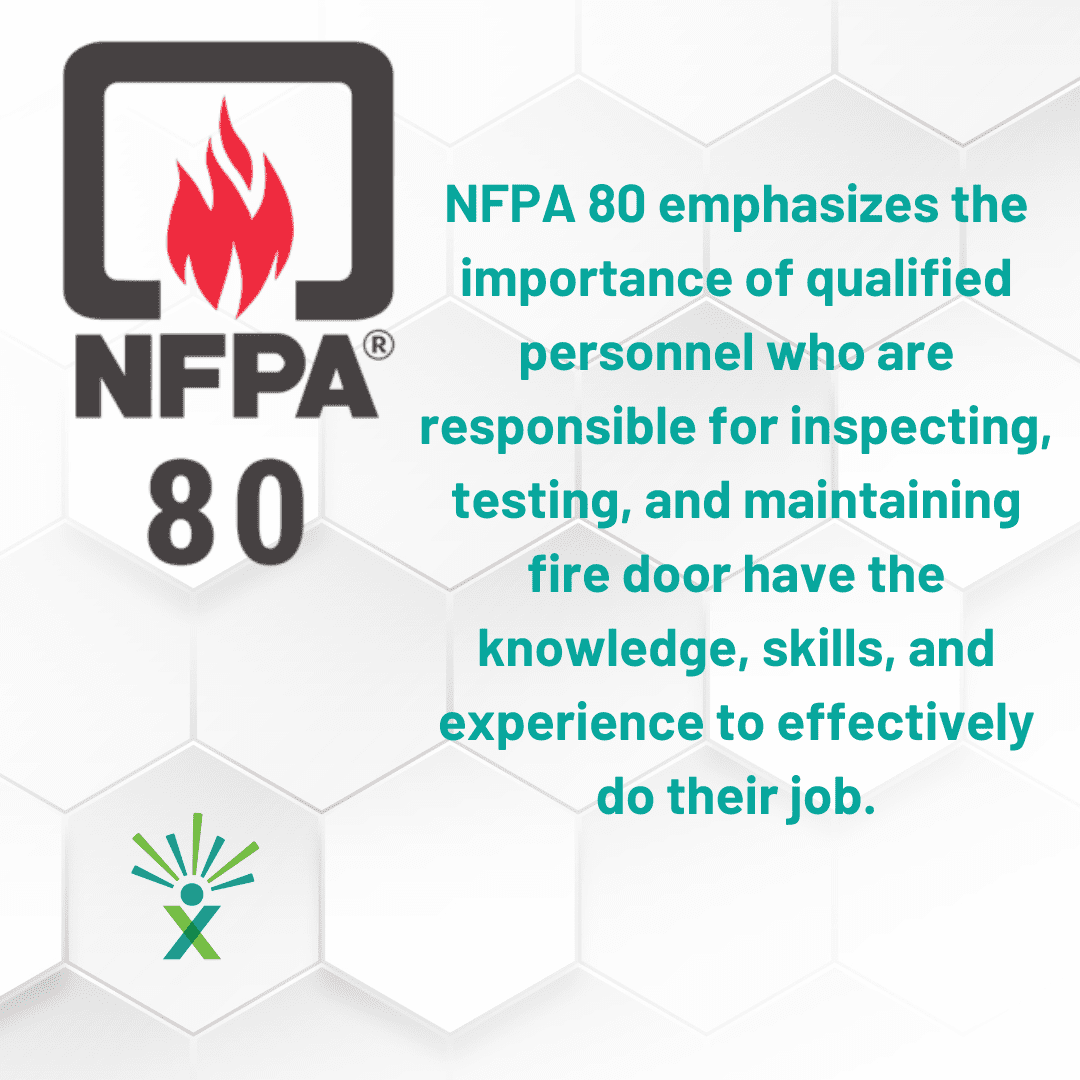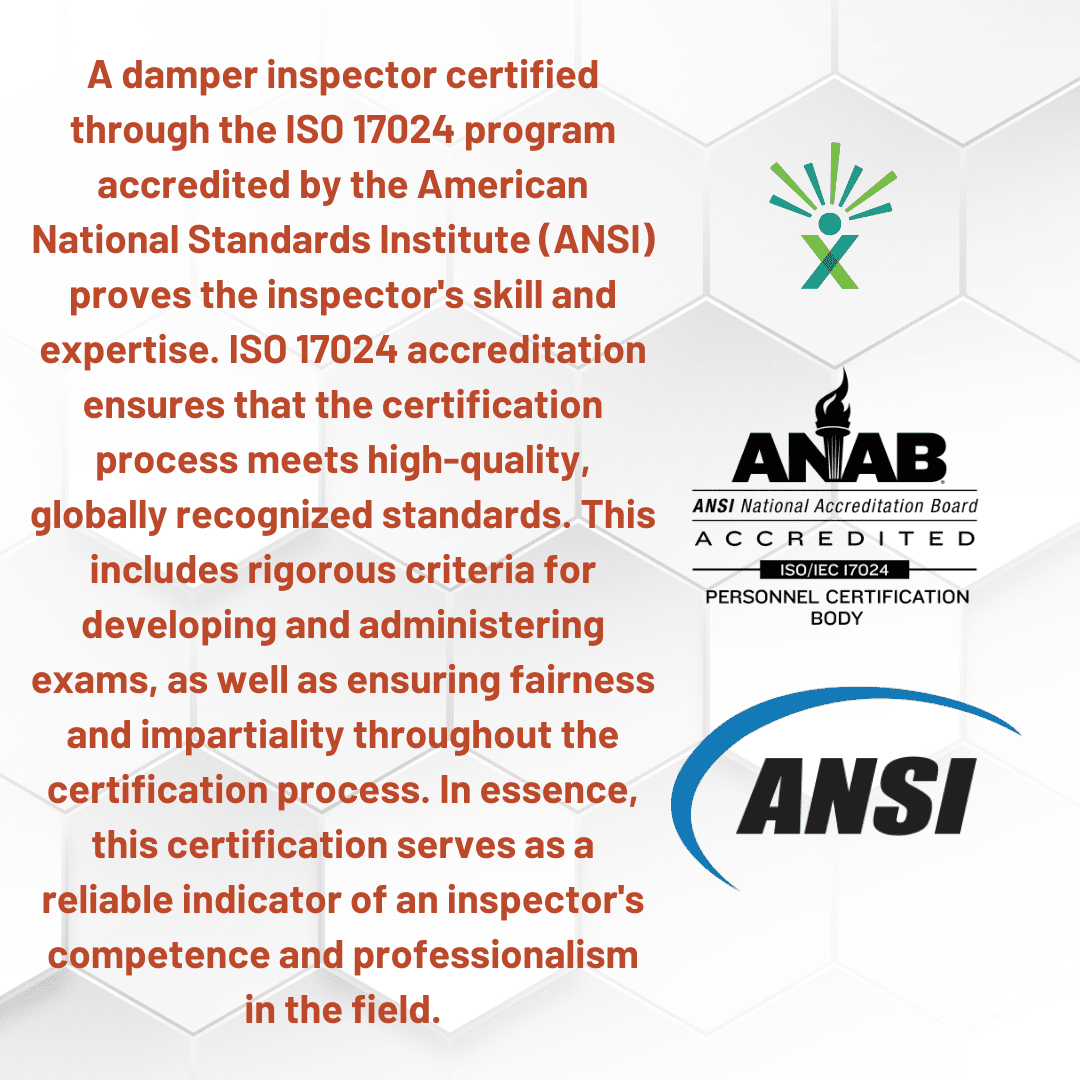Qualified Personnel: Dissecting NFPA80 & ANAB ISO 17024 Accredited Certifications

Subscribe to our Blog
In the world of fire safety, paying close attention to the inspection and upkeep of fire and smoke dampers is absolutely essential. These key elements of a building’s safety measures are designed to stop the spread of smoke and fire, saving both lives and buildings in the process. Yet, ensuring these dampers work correctly isn’t simple; it demands real skill and accuracy. This is why, in numerous states and cities, it’s now mandatory to be a certified inspector under NFPA 80 guidelines and ANAB ISO 17024 accreditation.

Understanding NFPA 80 Guidelines:
The NFPA, or National Fire Protection Association, offers detailed guidelines for fire and smoke dampers (among other fire safety measures) through a document called NFPA 80. It covers how these dampers should be installed, tested, inspected, and maintained across different types of buildings.
Being a “qualified personnel” as a damper inspector according to NFPA 80 shows a deep commitment to these strict standards and to keeping up with the best practices in the industry. Certified inspectors have the specialized knowledge needed to check the condition and function of fire and smoke dampers thoroughly, spot any issues, and take steps to fix them.
The Value of ANAB ISO 17024 Accreditation:
On top of NFPA 80, being certified under the ISO 17024 program by the American National Standards Institute (ANSI) also highlights an inspector’s skill and knowledge. This accreditation means that an inspector meets international standards for people who give professional certifications, including tough requirements for how exams are created, given, and managed.
When inspectors are certified under ANAB ISO 17024, it gives building owners, managers, and the authorities more confidence, showing that these inspectors have been through rigorous training and testing. This ensures they are really capable of assessing fire and smoke dampers effectively. This level of trustworthiness boosts the overall impact of fire safety strategies in buildings. Receiving a certification as a damper inspector ANAB ISO 17024 is crucial for guaranteeing the effectiveness and reliability of fire and smoke dampers in buildings.

Why Certification Matters:
Being a certified damper inspector is about more than just following the rules; it’s about a dedication to top-notch fire safety. Through targeted training, passing tough exams, and ongoing learning and professional growth, inspectors help prevent fire disasters and keep people and properties safe. It is now required to use a CFSDI in many states and municipalities by legislative code that varies per area. Certified inspectors uphold the highest standards of skill and professionalism, playing a key role in improving fire safety and reducing the risks linked to fires.





